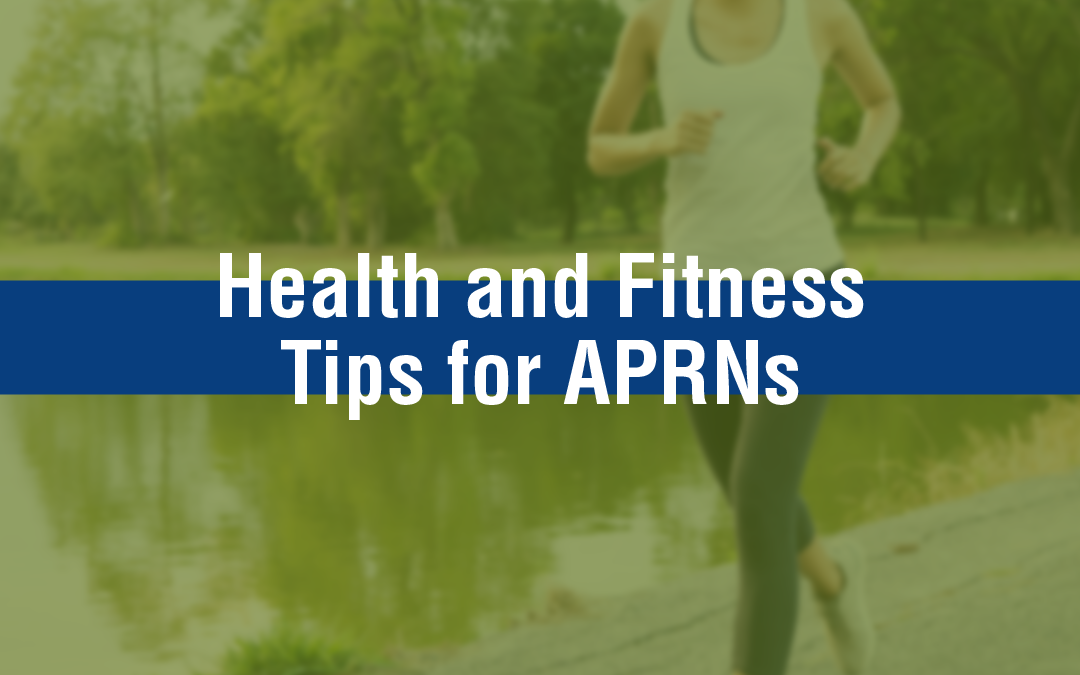
Being an APRN demands a high level of physical stamina and mental clarity, as the profession oftentimes requires spending large portions of each day on your feet, providing patient care, and making critical decisions about diagnoses and treatments. Focusing on your own health and fitness can help to ensure you have the energy necessary to provide the best possible care to your patients.
While there are a variety of ways to maintain a healthy lifestyle, the core tenets are to stay active and eat a healthy diet. Of course, the easiest way to do both of these things is to find ways to do each that you actually enjoy. Explore a variety of physical activities to identify how you best enjoy exercising (so it doesn’t feel like a chore) and get creative with your cuisine by trying new foods and recipes that are healthy without sacrificing taste and enjoyment.
We know this may be easier said than done. So we have a few health and fitness tips that will help to keep you on track and healthy.
Stay Active
It is safe to say that we all know that staying active and getting regular exercise is an essential component of a healthy lifestyle. In fact, scientific evidence suggests that people who exercise regularly not only live longer, they live better. What you may not know is that as we age, our bodies actually require more exercise, not less.
Specifically for APRNs, regular exercise offers several practical benefits:
- Exercise helps to maintain the physical stamina required for the job.
- Exercise can help prevent serious conditions such as heart disease and diabetes.
- Through exercise, you can ensure you are strong enough to perform strenuous tasks such as moving and lifting patients without risk of injury.
- Physical activity can help prevent mental health disorders, such as anxiety and depression.
So how much exercise is enough?
According to the United States Department of Health and Human Services, to attain the most health benefits from physical activity, adults need at least 150 to 300 minutes of moderate-intensity aerobic activity, like brisk walking or fast dancing, each week. Adults also need muscle-strengthening activity, like lifting weights or doing push-ups, at least 2 days each week.
But, keep in mind that we also know that any amount of physical activity has some health benefits and you can benefit from small amounts of moderate-to-vigorous physical activity throughout the day.
Maintain a Healthy Diet
Of course, we know that exercise isn’t the only component to a healthier you. A healthy, balanced diet is also essential to maintaining a healthy lifestyle and ensuring you have the energy and stamina necessary to care for your patients.
While what constitutes a “healthy diet” may vary a bit, with some choosing a vegetarian or vegan diet, etc., there is scientific evidence that “healthy eaters” have the highest intake of foods like high-fiber cereal, low-fat dairy, fruit, nonwhite bread, whole grains, beans and legumes, and vegetables, and low intake of red and processed meat, fast food, and soda.
It’s also important to note that eating well is not just about your weight. It can also help protect you from certain health problems that occur more frequently, especially among older adults. And, eating unhealthy foods can increase your risk for some diseases.